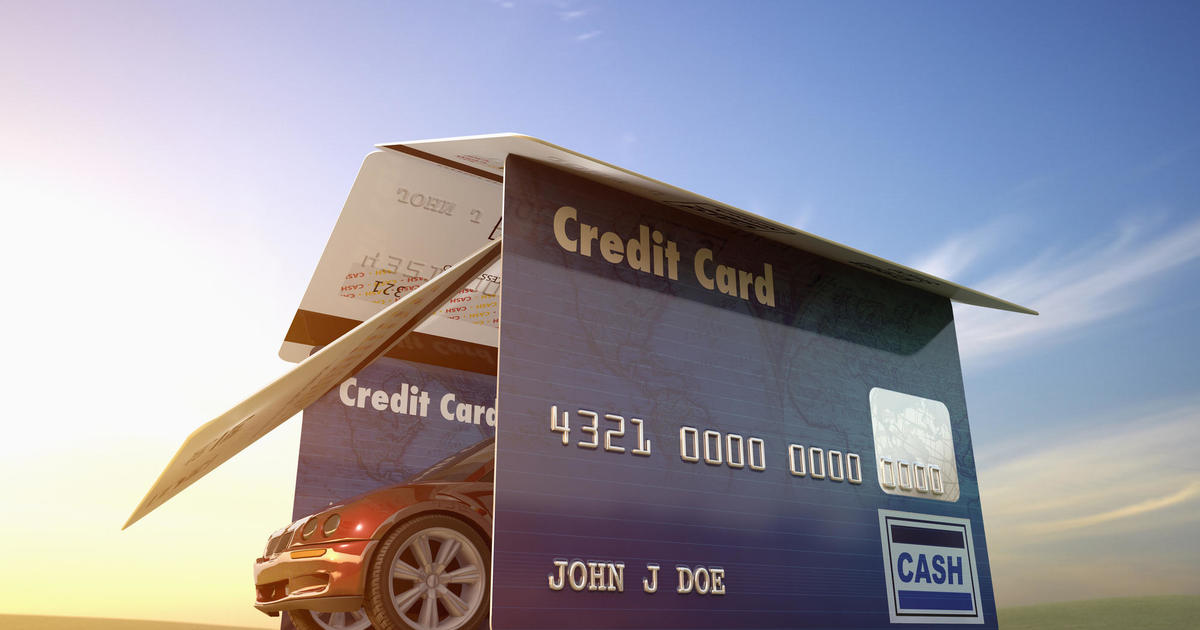Puerto Rico: Down so long, it could be up from here
President Trump will come to Puerto Rico this week, where he'll pledge more massive aid to this hurricane-ravaged island -- and compliment the military and civilians who are doing their best to salvage it. But just last week he tweeted a gloomy prognosis about its recovery: "Puerto Rico, which was already suffering from broken infrastructure & massive debt, is in deep trouble."
Trump's two-sided message mirrors the problems and promises of what may happen to the "Isle of Enchantment." Prior to the unprecedented destruction wrought by Hurricane Maria, this U.S. territory was already $74 billion in debt to Wall Street and defaulting on many financial obligations.
And it wasn't just interest payments. Salaries were cut, government employees were fired and citizens didn't get the tax refunds due them. The territorial government was robbing Peter to pay Paul in an effort to stay as financially afloat as possible.
Puerto Rico thought it dodged a natural bullet in early September, when Hurricane Irma merely skirted the island. But then a vicious Hurricane Maria ravaged it from end to end. The storm delivered a coup de grace. Losses from Maria's 145-mile-per-hour winds and lashing rains likely added another $70 billion-plus to Puerto Rico's unpaid bills.
But the island's huge losses -- and the humanitarian crisis -- could have an upside. Media attention has cast a harsh spotlight on the way the U.S. government is treating 3.5 million of its own citizens, amid their strength in the face of disaster, making it tougher to ignore them in the future.
"Puerto Ricans are resilient," said Dwight Mutchler, who owns a pharmaceutical company in Cidra, a town in the center of the island. "All they need is a jug of water and some canned food to survive. They recover quickly, and they'll share the food and have a good time doing it." Mutchler plans to resume shipping products this week.
For every problem Puerto Rico faces there's at least a temporary solution. "Ironically, right now our issue is an abundance of aid that can't get to where it needs to go," said Marisol Perez, who works in Washington, D.C., but has family and a house in Puerto Rico. "Supplies are stacked up and not going where they should."
President Donald Trump has temporarily waived the Jones Act, allowing previously forbidden foreign ships to transport U.S. goods between U.S. ports and Puerto Rico. That could help deliver much needed aid to the island, while an influx of military equipment helps clear the roads so aid can get where it's needed. If extended, this waiver would help ordinary island residents, whose cost of living is 12 percent higher than those living on the mainland.
The territory's hospitals, already on generator fuel that's running out, will soon see the U.S. Navy hospital ship known as Comfort. ATMs are running out of cash, but one of Perez's friends, who works in banking, has been walking to work for the past week to help ease the money crisis. Many post offices are back up and running despite gasoline shortages.
"Puerto Rico is an island, not a ship," said Perez. "We won't sink."
But what will happen after Mr. Trump and the media leave? Will the recovery be long-lasting and really benefit the 45 percent of Puerto Ricans who live in poverty and the 25 percent who are unemployed?
In some instances, the after-effect of hurricanes has been positive. New Orleans witnessed more than a thousand deaths when its levees broke in 2005 during Hurricane Katrina. The city, which became a national disgrace and embarrassed President George W. Bush when he didn't visit but just flew over it, cost the Federal Emergency Management Agency director his job. But New Orleans and parts of Louisiana have since received $120 billion in federal aid, and The Big Easy is now a reborn city with new skyscrapers.
Mr. Trump was vague on the exact amount of aid the embattled island would get, but it will be a lot.
"Ultimately, the government of Puerto Rico will have to work with us to determine how this massive rebuilding effort -- it will end up being one of the biggest ever -- will be funded and organized, and what we will do with the tremendous amount of existing debt already on the island," the president said. How the feds and Puerto Rico resolve that "tremendous amount of existing debt" could go a long way to determining the island's future.
Still, given that New Orleans, a U.S. city of less than half a million, got much of $120 billion, plenty of good things could happen in Puerto Rico with a similar amount of money. Hospitals and ailing infrastructure could be rebuilt and modernized. Better health care might bring back some of the nearly 10 percent of the island's young population that left for the mainland, mostly Florida and New York.
The difficulty is in setting the government's wheels in motion. But a bipartisan effort is already underway in Congress led by Senators Charles Schumer, D-New York, and Marco Rubio, R-Florida, to provide more aid to the embattled island. Both representatives have large Puerto Rican populations in their states.
Analysts are skeptical, but hopeful. "Federal relief funding … could offset some of Puerto Rico's financial challenges and help spur renewed economic growth," according to Moody's Investors Service, which rates the territory's bonds. On the other hand, a weaker economic outlook could also benefit the island, which is now on track for a court-ordered restructuring of its debt, because that "could support arguments in favor of lower bondholder recoveries."
Puerto Rico is no stranger to economic ups and downs. It has seen them in the past. For many years the island had a huge boom from the IRS code that allowed tax incentives for corporations and thus spurred many pharmaceutical firms to come to the territory. It was phased out early in this century, helping to bring about the current fiscal morass.
Congress's 2016 Puerto Rican Oversight, Management and Economic Stability Act (PROMESA) offers some proposals that economists say make sense, such as privatizing government services to lower the debt without firing more public employees, who now account for 26 percent of the workforce. But they're also controversial, such as job creation through the introduction of natural gas fracking.
The biggest opportunity is to totally restructure the island's debt. But the U.S. Supreme Court has vetoed this, ruling that a 1984 act passed by Congress allows U.S. municipalities to get this kind of debt relief, but not a territory like Puerto Rico.
Will Congress change that law? Critics can argue that Puerto Rico, like Greece, has spent itself into bankruptcy. But it's difficult to see the anguished faces of people in need wading through waist-high water while toting bags of food and not believe that the average Puerto Rican hasn't demonstrated courage and resilience.
"I hope people will remember that Puerto Rico's residents are not their government," said Lauren Lluveras, a post-doctoral fellow at the University of Texas who grew up in Puerto Rico. "I think we have an opportunity to advocate reform with our federal representatives, asking them to lift Medicare caps, lower taxes and let Puerto Ricans have access to supplemental Social Security and the earned income tax credit."
Puerto Ricans believe they have a strong supporter in Gov. Ricardo Rossello, a graduate of the Massachusetts Institute of Technology and the University of Michigan, where he studied stem cell research. He's the son of a former governor and an advocate for Puerto Rican statehood.
Rossello has pointed out that denying the aid needed to save people from disease and starvation, rebuild their damaged homes and provide them with jobs could foster a mass migration to the continental U.S., where they would likely overwhelm social services. Since Puerto Ricans are U.S. citizens, they need only a plane ticket.
Unlike earlier migrations, these newcomers would likely be the older, poorer and more rural people whose aged wooden homes on mountainsides were washed or blown away and not likely to be replaced. Less than 50 percent have wind insurance, few have flood insurance and many are at risk of foreclosure, said Lluveras. "Of the 500,000 active mortgages, over 10 percent are in default."
Due to the destruction, Puerto Ricans now have the support and sympathy of an American public that sees them as pioneers, along with those in Houston and the Florida Keys. And Puerto Ricans see themselves that way. Their bootstrap economy has enabled them to survive in "Hurricane Alley" where the 1932 Category 4 San Ciprian storm battered the island and killed 250 people. Hurricane Georges in 1998, which Mutchler remembers well, killed just as many. "We get used to them," he said.
But it takes a while, particularly when one as big as Maria scores a direct hit. Paula Diosquez-Rice, principal economist at London-based analytics firm HIS Markit, predicts a "deeper decline in economic activity for the first half of 2018 followed by a more dynamic environment driven by investment in infrastructure and recovery efforts."
But she admitted that's a guesstimate based in part on "the amount of federal public and private sector aid that Puerto Rico receives."
While the ball is in the federal government's court, some Puerto Ricans feel the average American can also do his or her part just by visiting. After the Sept. 11 terrorist attack in New York City, then Mayor Rudy Giuliani put out the welcome mat: "Come here and spend your money." Americans did, and the city was able to recover.
Six percent of Puerto Rico's economy depends on the tourist industry. And while conditions are still sketchy, oceanfront hotels should start to reopen in October.
"We'll be back on our feet," predicted Perez. "A lot sooner than people think."



